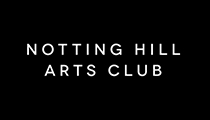This website uses cookies so that we can provide you with the best user experience possible. Cookie information is stored in your browser and performs functions such as recognising you when you return to our website and helping our team to understand which sections of the website you find most interesting and useful.
Saturday 31 October 2015, 12:56 | By Chris Cooke
Q&A: Nathalie Du Bois, 6 Degrees Entertainment
Brands & Merch Business Interviews Labels & Publishers
This interview appeared in the September 2015 edition of the CMU Trends Report. Buy our reports from the CMU Shop or get every edition by signing up for CMU Premium.

The sync market is global – as are the opportunities – though some things do work differently in the US versus Europe. Sometimes this is because of copyright law and licensing conventions, other times because of differences in the industries which are doing the syncing.
Nathalie Du Bois from 6 Degrees Entertainment knows the sector on both sides of the Atlantic, having led licensing projects and businesses in both the US and the UK. We spoke to her about her experiences in sync, and what European artists and rights owners should know about the way things work Stateside.
CC: Tell us a bit about your background and how you got into music supervision.
NB: My background is legal. I worked at Manatt, Phelps & Phillips, one of the most reputable law firms in the US. It was ahead of its time, doing what we today would consider 360 type deals with artists before that terminology even existed. Manatt’s clients at the time included major record labels and music publishers in the US, so they were in an ideal position to scout talent and assist in securing deals.
As a result of being at the law firm, friends would always ask for “legal assistance” and on one occasion I was asked to music supervise a project for the American Lung Association that my friends were producing. They had mastered the project and were about to release it to their client for distribution when, simply as a result of going to the movies and seeing the credits, it occurred to them that perhaps they should get the music rights cleared for the recognisable songs they had already synced and mixed to picture.
They called me and asked me to do whatever it took to get all the rights cleared for the soundtrack which included hit records from the 70s and an Enya track, preferably within the week! The songs were owned by major publishers like Warner/Chappell and major record labels including Arista. Needless to say, it was a big ask, because this was the late 1990s when the majors would take a minimum of four to six weeks to clear a licence and would usually command large fees.
As a result of persistence, creativity and a bit of luck, I got all the music cleared for less than $3000 in under a week and developed a longstanding relationship with one of the top executives in the industry from working on that project.
CC: Tell us a bit about your role today.
NB: Now my role has expanded to clearing rights and negotiating contracts for any type of intellectual property related to the entertainment industry, including music, media and film rights. In music, I specifically focus on exporting artists, labels and publishers based outside the US back into America for commercial placements in film and television projects.
CC: How do the US and European sync markets compare? Should European rights owners seek to crack the US sync market?
NB: The American market is much larger in terms of income opportunities, and for various reasons. For starters, the budgets for TV, film and commercials are generally substantially larger in the US than the UK. And in TV, there are larger upfront fees, mainly because deals are done directly rather than under the blanket licences of the collecting societies, which also means fees are linked to the budgets of the project, and the profile of the song and artist. With all this in mind, yes, definitely, European rights owners should seek to crack the US sync market, usually through a preferred vendor based in the States.
CC: So, the fact that TV sync is licensed through the collective licensing system here, but through direct deals in the US, makes a big difference?
NB: Yes. And not just because it means the potential fees will likely be higher. Without the blanket licence, the TV studio has to negotiate direct with every rights holder with a stake in both the song and the recording. This means that a rights holder controlling just 1.5% of a song can in essence hold up an entire licence, because the studios won’t proceed until all parties have agreed and signed off on the deal. This can substantially slow down the process.
Given the speed at which most TV productions need to complete their shows, coupled with budget constraints, realistically for all but the top rated TV shows recognisable commercially released songs will be out of reach for the majority of their music spots.
Whereas in the UK, broadcasters have a choice of the ‘creme de la creme’ of music for each and every music spot in their TV programmes – which they use under the blanket licence – in the US the majority of the spots will go to lesser known and independent artists. So, in a television show that is filled with music, there will be something like ten to twelve spots for music per episode, and while maybe up to five might be filled with recognisable songs, the others will be lesser known material. Which is an opportunity for lesser known artists and songwriters.
It is not unusual for a pilot TV show, being made by a producer to pitch to a network, to be filled with wall-to-wall recognisable songs that would cost in the seven figures to clear for just that one episode. So if the show is picked up by a network, the producer is quickly told by the music supervisors that all the music from the pilot will have to be replaced… much to the producer’s dismay!
CC: You mention that with co-owned works, one rights owner with a tiny stake can hold things up. But I thought that one difference between US and UK copyright law is that in America any one co-owner in a song could do a deal on behalf of everyone, providing the money is then shared out.
NB: You’re right that technically speaking that it is possible under US copyright law, but in practice it rarely happens. The film and TV studios don’t want to risk having any rights issues down the line whilst their property is distributed worldwide, so they want a sign off on the licence from each rights holder tied to the publisher and master. Which is why someone with just 1.5% ownership can hold up the clearance of an entire song.
CC: You’ve said that – because TV sync is negotiated direct – there is often more money to be made. What kind of money?
NB: Yes, the fees are higher in the US compared to the UK, particularly with regard to the upfront fees. In the US, the upfront fees an unknown independent artist usually gets if their songs are placed in a television show will range from about $750 to $2500, more or less depending on the budget of the show (reality and MTV are less). An artist that has generated attention, and is on the Billboard charts, will generate more money.
Additionally, the subsequent performance royalties then paid each time the TV show airs are generally higher in the US. Though an exception to that rule is theme songs, because of the way this money is calculated by some of the American [performing rights organisations]. In the UK composers of theme tunes are paid a set rate for each use. In the US they are paid according to a complicated calculation based on a weighting formula.
CC: How do the budgets compare with film and advertising?
NB: For film, the size of the budgets for productions coming out of the big US film studios mean that the upfront fees for recognisable songs can be substantial. The bigger budgets – and having a little more time – also means that the music in a big blockbuster is more likely to be well known songs from well known artists.
Commercials for large brands like Coke or Apple will also command large fees, not least because the brand will usually want exclusivity within their markets for a certain time period. In advertising, the price of the ad space being used will also impact budgets. Music played in ads that air during the Super Bowl will command an enormous fee as this is considered one of the most expensive advertising spots in the US, due to the size of the audience it reaches.
However, this also creates a very competitive market place, and on the recordings side, it is common for brands to use new versions of very recognisable songs, reducing the number of rights that need to be negotiated.
CC: It feels like LA is the centre of sync in the US, and possibly globally. Is it important for rights owners to have a presence there to crack the American and/or international sync markets?
NB: LA is the centre of sync in the US for television shows and films in particular, simply because it’s where the majority of studios are based, even if not all the shows and movies are actually produced or shot there.
So it’s important to have a presence in the city, in order to build relationships with the studios and the executives who work there. Though it’s also important to have a presence elsewhere when it comes to the international market.
CC: Are the different strands of the sync market – so TV, film, gaming, brands – autonomous from each other. Or do the supervisors all regularly speak with each other?
NB: Traditionally executives at the different studios didn’t regularly speak to each other, and often didn’t even know their counterparts. Though in the last five years in particular this has changed and communication has greatly increased.
This is partly because of ever-increasing online communications, but also because of changes in the industry, and various acquisitions, which means people have moved and shifted positions quite a bit, and as a result have often now worked with counterparts at other studios.
Gaming is a separate strand where different rules seem to apply! The gaming industry often seeks to own publishing rights to the songs versus entering into licensing deals, which means the rights holders get paid once and then do not receive ongoing royalties.
CC: What tips would you have for smaller UK rights owners looking for sync opportunities in the US?
NB: I think the first thing is to develop an understanding of how music rights work in the US, and what studios require in order to do a deal.
Then you need to become familiar with the type of sync deals that are available in America, and how those deals are negotiated. It is much more common to use middle-man agents to licence songs for TV and film in the UK, whereas in the US studios more commonly contract with ‘preferred vendors’, which are rights holders they have a longstanding working relationship with.
CC: And finally, what tips would have for smaller US rights owners looking for sync opportunities in Europe?
NB: I think the first thing would be for those rights holders to secure some syncs in US TV shows, because they will often be transmitted in Europe and therefore expose your music to this audience. Then they should enter into sub-publishing or licensing agreements with companies that have offices in those territories to collect and administer the royalties you are already due, and to further exploit your catalogue for placements within Europe.
This interview appeared in the September 2015 edition of the CMU Trends Report. Buy our reports from the CMU Shop or get every edition by signing up for CMU Premium.
READ MORE ABOUT: 6 Degrees Entertainment | Nathalie Du Bois
Friday 30 October 2015, 13:11 | By Paul Vig
Vigsy’s Club Tip: Drumcode After Dark at Studio Spaces E1
Club Tip CMU Approved

East London’s Studio Spaces E1 tomorrow night hosts some night-time festivities to follow on from a daytime of Halloween clubbing across the road at Tobacco Dock.
Adam Beyer and Ida Engberg go back-to-back in the warehouse room, while tech wizard Beyer hosts Dubspeeka and Reset Robot in the main space. The rather good Will Saul will also be on the decks at some point, and Nicole Moudaber and Dense & Pika complete the line-up.
All in all, a frighteningly good line-up. Happy Halloween.
Saturday 31 Oct, Studio Spaces E1, Unit 2, 110 Pennington Street, Wapping, London E1W 2BB, 10pm – 6am, £25. More info here.
READ MORE ABOUT: Adam Beyer | Ida Engberg
Friday 30 October 2015, 13:06 | By Chris Cooke
MegaUpload defence to get underway next week
Business News Digital Labels & Publishers Legal MegaUpload Timeline Top Stories

Legal reps for MegaUpload founder Kim Dotcom will begin their defence on Monday in the extradition hearing that will decide whether he and three ex-colleagues should face criminal charges in relation to their former business in a US court.
If you’re getting a sense of déjà vu here, yes, that was meant to happen four weeks ago, after prosecutors wrapped up their arguments at the start of the month as to why Dotcom et al should be extradited. But the MegaUpload defence has so far spent its defence time arguing that no defence should be necessary. Though without success.
As previously reported, legal reps for Dotcom and friends say it is impossible for their clients to get a fair extradition hearing because, although US officials have unfrozen some of the cash seized when MegaUpload was shutdown by the authorities in 2012, the four men can only use that money within New Zealand. But, the lawyers say, US expertise needs to be hired to ensure their clients are properly represented.
Team Mega tried to have the already much-delayed extradition hearing postponed yet again last month based on those arguments. When they failed to get that postponement, they used the first day of the court hearing itself to again call for the proceedings to be delayed. And when that call went unanswered, they used their defence time to again insist their clients needed more cash to fight the case against them.
The judge overseeing the extradition proceedings, Nevin Dawson, has again refused to call off the current hearing, while also rejecting calls for an extended discussion on the defence’s arguments as to why the case should be postponed or dismissed. Which means, on Monday, Team Mega will actually have to respond to the arguments previously put forward by the prosecution, rather than just re-running the case for postponement.
Responding to that news, Dotcom himself said: “We will identify why the United States case is flawed [next week]. Sadly because of the limited focus of such an extradition hearing I can’t call the required and planned expert evidence to simply answer the incorrect factual assertions by the United States. The United States won’t permit [experts] to be paid”.
He went on: “The case will now turn on important legal argument. We outline this on Monday. However, when we enter the ring we do so to win. The obstacles the United States has put up to stop us from fighting back won’t stop us. We won’t be silenced by bullies! I wish you could all be at my court hearing on Monday. It’s going to be good”.
With so much time having been spent to date on the defence’s part on legal technicalities and finance issues, it will be interesting to finally hear their arguments against the actual charges Dotcom et al face, ie those of money laundering, racketeering and rampant copyright infringement. Safe harbours are sure to make an appearance.
READ MORE ABOUT: Kim Dotcom | MegaUpload
Friday 30 October 2015, 13:05 | By Andy Malt
Sony Music and Artist Legacy Group form joint venture
Business News Deals Labels & Publishers

Sony Music and the Artist Legacy Group have launched a new joint venture that provides artist brand management services, mainly for heritage artists, with the new enterprise sitting alongside the major label’s catalogue division, Legacy Recordings.
The new business will be overseen by ALG CEO Ashley Austin and COO Scott Austin, and will operate under the ALG name. You’ll barely even notice a difference, except that it’ll now be a division of Sony’s Commercial Music Group in New York under the watchful eye of Legacy President Adam Block.
Says Ashley Austin: “SME/CMG’s vision for expanding its service offerings to include brand management and development is an incredibly intuitive and forward-thinking strategy. ALG prides itself on proactive protection and promotion of our clients’ unique legacies, and we are thrilled to embark on this joint venture. Working closely with Adam Block and the SME/CMG family will allow for the creation of new and exciting opportunities across the board”.
Scott Austin adds: “Intellectual property rights management plays an integral role in successful, comprehensive marketing strategies in today’s entertainment industry. By working closely with Sony Music affiliates, ALG will provide unparalleled levels of service to our clients and maximise the impact of campaigns surrounding their name, likeness, media and other content”.
Services provided by ALG to Legacy and other Sony-signed artists (and beyond the Sony Music domain too) will include seeking merchandising opportunities, social media management, print buying, and trying to convince film companies to make biopics.
READ MORE ABOUT: Artist Legacy Group | Sony Music
Friday 30 October 2015, 13:03 | By Chris Cooke
Senior management rejig at Universal Music
Business News Industry People Labels & Publishers

Following the departure earlier this year of digital chief Rob Wells, and the recent confirmation that Max Hole was stepping down as boss of its international division, the Universal Music Group has announced a new executive management board and senior management structure.
Just in case you wondered, the rejig is designed to “strengthen the company’s ability to operate its business across 60 countries more nimbly” and to ensure “continued growth as the most commercially successful and creatively diverse music-based media and entertainment company in the world”. Or at least that’s what boss man Lucian Grainge says.
Key new appointments include Andrew Kronfeld, previously global marketing man within Universal Music International, becoming VP Marketing for the whole group, with the task of coordinating marketing activity between the mega-major’s different regional divisions, the bosses of which will now report directly into Grainge.
On the digital side, the major has hired Michael Nash, Warner’s former digital chief who had been consulting for the mini-major again since the summer. He becomes Exec VP Digital Strategy, overseeing Universal’s digital business partnerships worldwide, which will include negotiating the next round of deals with key streaming services.
Other remit changes atop Universal including Michele Anthony adding US catalogue and Canadian operations to her area of oversight; Boyd Muir adding Bravado and Eagle Rock to his domain; and Jeffrey Harleston, chief legal man in North America, now having a global business and legal affairs role.
Says Grainge: “Universal Music is one of the world’s most powerful sources of creative and commercial opportunities for artists, labels, digital music and video services and platforms. Our continuing strength rests in our capacity to anticipate and then adapt to the rapid changes in how music is created, distributed and ultimately experienced in an environment that is at once both singularly global and regionally nuanced. As technology and business models continue to evolve, we must do the same”.
He goes on: “The new executive management board and structure will enable us to drive change throughout the organisation, meet the individual market’s unique needs and serve as the most effective partner to artists in what is more than ever a truly global business. Most importantly, this new structure will be able to accelerate the careers of our artists, by providing them with focused teams that are entrepreneurial and innovative and have the ability to seamlessly tap into the resources of the entire company. This management team represents the best the music industry has to offer – a combination of deep creative, commercial, regional and industry expertise”.
READ MORE ABOUT: Universal Music
Friday 30 October 2015, 13:01 | By Andy Malt
Events Industry Forum publishes welfare guide for live shows
Business News Live Business

A new guide to providing welfare services at live events has been published. Which, I admit, does sound like the dullest read in the history of reading. But people do like to think that their lost property might turn up somewhere after they drunkenly drop it in a puddle, don’t they? So is it really that boring? Yes, it is. But it’s important, OK?
The guide – which includes advice on a variety of procedures organisers of large events should have in place, covering everything “from drug problems and distress to lost people and property” – is published by the Events Industry Forum and written by welfare specialist Penny Mellor. It contains both guidance and downloadable forms that can be used in providing relevant services. So at least that’s something you don’t have to sort out yourself.
Apparently no one has thought to put this information in one place before, and it’s hoped that doing so now will help to establish more consistency across events. It will be made available for free to subscribers to the EIF’s Purple Guide, more details on which you can find here.
READ MORE ABOUT: Events Industry Forum
Friday 30 October 2015, 12:59 | By Andy Malt
Bop.fm to close as staff move to identity theft protection firm
Business News Deals Digital

Platform-agnostic playlist service Bop.fm has been acquired by identity theft protection company LifeLock. It celebrated the news by shutting itself down yesterday, and will now close its website entirely this Saturday, which doesn’t give users much time to export their playlist data.
Basically, LifeLock wanted the Bop.fm team and their expertise, but not their product. The playlisting company’s founders Shehzad Daredia and Stefan Gomez said in a statement: “Our team will apply their consumer product DNA to help enhance the services that LifeLock delivers to millions of customers – we can’t wait to show you what we have in store”.
Founded in 2013, Bop.fm raised $2 million in funding in July 2014. Like services such as Songdrop and Tomahawk, it aimed to allow users to create playlists that seamlessly draw in tracks from various sources, enabling the sharing of playlists between users of differing streaming platforms, and avoiding the issue of gaps in catalogue that can occur when compiling a playlist from a single source.
In their statement, the founders added: “While proud of what our small team has accomplished in a short period of time, we realised that we still had a long way to go to unify the ever-evolving digital music landscape. Building out a central destination for consumers can be very expensive and require hundreds of millions of dollars in funding, in an industry fraught with monetisation concerns”.
They concluded: “As we considered the future direction of the company, we debated the trade offs between doubling down on a risky endeavour versus aligning ourselves with more promising opportunities that had presented themselves”.
Bop.fm users should now have received an email informing them how to save the data help within their accounts.
READ MORE ABOUT: Bop.fm | LifeLock
Friday 30 October 2015, 12:58 | By Chris Cooke
Pandora boss questions whether Spotify freemium can last forever
Business News Digital Industry People

Pandora chief Brain McAndrews has had a little dig at Spotify because, well, why not? If James Blunt can have a little dig at Spotify, why not Brian McAndrews?
It’s been a tricky week for Pandora since announcing its most recent financials, with investors seemingly nervous that customer acquisition is slowing, even though revenues are up. Some on Wall Street seem to think the arrival of Apple Music has had an impact of Pandora’s ability to sign up new users, though McAndrews correctly points out that Spotify – with its fully on-demand freemium level – is more of a competitor than Apple’s streaming set up, which only offers limited free channels beyond the three month free trial.
When speaking to investors about his company’s recent performance, McAndrews admitted that Spotify freemium may attract consumers – and especially younger consumers – away from his personalised radio service. But, Business Insider has noted from McAndews’ most recent musings, he went on to say: “I think some other models like Spotify and others, there are some that have perpetual free alternatives, and that is going to attract some of the younger audience. [But] whether that’s sustainable or not is a very different question”.
With freemium being primarily a loss-leader marketing tool for companies like Spotify – and a costly loss-leader marketing tool at that, which burns up lots of venture capital – McAndrews wonders if his competitors will eventually have to turn off their expensive-to-run fully-on-demand freemium options.
Of course, the boss of loss-making Pandora having a dig at Spotify for its current loss-making growth strategy might seem a bit rich, but he may still have a good point. If and when Spotify becomes a publicly listed company like his, it might change its mind about the value of operating a cash-haemorrhaging freemium strand as a marketing channel. Which would give more-limited-functionality Pandora-type services – which are cheaper to license – an advantage in attracting those consumers less willing to pay.
READ MORE ABOUT: Brain McAndrews | Pandora
Friday 30 October 2015, 12:55 | By Andy Malt
Lady Leshurr: Music industry remains tough place for rappers who are female
Artist News Business News

The UK rap scene remains a tough place to get ahead if you’re a woman, says rapper Lady Leshurr, regardless of your talent.
“We don’t get classed as just ‘rappers'”, she tells Noisey. “We get classed as ‘female rappers’ – like you’re good for a girl, you shouldn’t be doing this, you should be in the kitchen washing dishes”.
“We get swept under the rug a lot, like ‘oh, it’s just her’, and we don’t ever get mentioned with Skepta and people like that”, she continues, while discussing the lack of any women in Kayne West’s UK-rap-celebrating BRITs performance earlier this year. “We’re still placed in the ‘good for a girl’ box and it’s actually horrible, but that’s one of the main things I wanna break next year. I wanna make sure we get named alongside all these established artists in the UK and America”.
She adds that the problems are as much behind the scenes as they are on stage: “I realised … that the industry doesn’t actually know what to do with females as far as marketing and getting them out there goes. It felt like their best strategy was to pit females against each other. The media tries to make some imaginary beef happen, and I just hate it. I’m all about female empowerment – I’m a representative in it, so I’m never gonna put a female down. I’m never gonna be in beef over silliness”.
Read the full interview here, and watch the latest instalment of Lady Leshurr’s ‘Queen’s Speech’ freestyle series here:
READ MORE ABOUT: Lady Leshurr
Friday 30 October 2015, 12:44 | By Andy Malt
Ed Sheeran appears on Home & Away
Artist News Media

Well, Ed Sheeran’s appearance in Australian soap opera ‘Home & Away’ seems to have been a resounding success. Your move, ‘Neighbours’. Originally aired in Australia back in September, the episode hit UK screens yesterday.
The musician appeared as himself visiting his former foster mother Marilyn Chambers*. While walking with her on the beach, another character, Matt Page, runs up and asks him to play a song for the people of Summer Bay. At first he says no, but then his arm is twisted. Not literally, because that might stop him from playing guitar. Injury free, he performed ‘Thinking Out Loud’.
“It’s an Australian institution”, said Sheeran of the show. “It’s always on in my local chip shop”.
High praise indeed. This isn’t actually Sheeran’s first soap appearance though, and he’s keen to do more: “I got asked to do it and it sounded like it could be fun. I did ‘Shortland Street’ in New Zealand as well and I’m sure if ‘Emmerdale’ or ‘EastEnders’ ever ask me in England I would do that as well”.
You see, this is what it’s come to now that all the performance slots for musicians on TV have disappeared.
Alec Snow, who plays Matt Page, said of acting alongside Sheeran: “It was an awesome experience filming with Ed because he seemed like a really down-to-earth, nice guy that genuinely wanted to be there. It was funny seeing how star-struck everyone both on and off set was. It was quite entertaining seeing the effect he had on everyone around him”.
You can watch the full episode here. Or – in the unlikely event you don’t actually want to do that – here’s a clip of Ed doing his acting:
And here’s him singing his little song:
*Ed Sheeran was not actually fostered by a fictional Australian.
READ MORE ABOUT: Ed Sheeran
Friday 30 October 2015, 12:39 | By Andy Malt
Official Charts live shows to launch next month, Melissa Steel and Karen Harding co-headline
Artist News Brands & Merch Gigs & Festivals

Melissa Steel and Karen Harding will co-headline the first ever, and previously reported, Official Charts students’ union club tour, it has been announced. The first show will take place at Teesside University in Middlesbrough on 6 Nov. Also on the bill will be WSTRN, whose approved single ‘In2’ will be released the same day.
The Official Charts Company’s move into live events is being bankrolled by clothing retailer New Look, a brand partnership that coincides with the appointment of new business development guy Richard Staplehurst at the chart-making outfit.
He says: “This partnership with New Look is a fantastic and exciting example of things to come for OfficialCharts.com. I’m looking forward to growing up brand partnership opportunities for Official Charts and working with advertisers who are looking to reach influential and engaged culture buffs, while aligning themselves with the trusted authority in the music space”.
Sounds super fun. Party!
The full dates for the OCC tour are:
6 Nov: Middlesbrough, Teesside University
13 Nov: Guildford, University Of Surrey
20 Nov: Loughborough University
27 Nov: Keele University
4 Dec: Hatfield, University Of Hertfordshire
READ MORE ABOUT: Karen Harding | Melissa Steel | Official Charts Company | WSTRN
Friday 30 October 2015, 12:36 | By Andy Malt
CMU Beef Of The Week #280: Apple v Adele
And Finally Artist News Beef Of The Week Deals Live Business Management & Funding

Adele is still back, everyone. It wasn’t a dream. Music-industry-saving, record-breaking, wealth-creating Adele. She’s already set about drawing all of Google’s money into the music industry by getting everyone in the world to watch her new video on YouTube six hundred times each. And now she’s going after Apple.
Yeah, that’s right. For too long we’ve sat back and watched Apple steal all of our cash under the guise of being the industry’s single biggest retail partner the world over. Bloody Apple, coming over here, giving us a stop-gap solution to piracy that, for a time, went a long way to offsetting the downturn in physical record sales.
Damn, I wish Steve Jobs had started out as a music industry man. Then I would totally have been able to say “coming over here, taking our Jobs”. But no, that’s another thing that Apple has ruined for us all.
Anyway, Adele’s back. Oh dear lord she is back. Praise be. Everything’s going to be fine. I thought we were going to have to rely on Taylor Swift and Ed Sheeran forever. It doesn’t bear thinking about. And don’t even talk to me about Coldplay. Christ.
No, Adele’s the one. And she’s going to turn this thing around. How? Well, how about this: Apple just announced third quarter revenues of eleventy billion, and Adele just got up and stormed straight in there, punched Tim Cook in the guts and shouted, “Give me £19.5 million in tour sponsorship, you cunts!”
“Nine. Teen. POINT. Five”, she repeated with gritted teeth, staring down Jonny Ive.
By which, I mean, Adele’s agents at William Morris Endeavor have reportedly set up a series of meetings with Apple’s marketing department to negotiate the IT giant sponsoring her tour. Actually, it’s quite possible that it was Apple that proposed all this in the first place. I don’t know. But let’s not spoil a good story, right?
“Nine… teen… point… five”, she growled at Eddy Cue.
They were all terrified. Fucking terrified. Because they’ve not got Steve ‘Fierce Fists’ Jobs to protect them anymore, see. Ive bit his lip, drawing blood, though it was Cue who was first to let out a whimper. This was not like that time he’d had a nice Sunday morning chat with Taylor Swift at all. That was easy by comparison. There was a real sense of danger here. No one could tell what Adele might do next.
Adele knew that she had them in the palm of her hand. She knew she could ask them for anything she liked. But she forgot the second rule of contract negotiation. The first rule, of course, is glare and talk slowly. The second? Even when you have them in the palm of your hand, don’t push it.
She pushed it.
“I want copies of my album in every Apple Store you have. Even the fake ones in China. Especially the fake ones in China.”
“On CD?”, sobbed Cook.
“On… C…”
“But…”, began Ive.
“SHUT UP”, screamed Adele. “Let me finish”.
A silence gripped the room.
“D”.
The silence became deafening.
“No”, came a voice from the corner of the room. They all turned to see Senior Vice President Of Online And Retail Stores Angela Ahrendts, who had so far been sitting almost unnoticed in the corner of the room.
“No”, she repeated, channelling the spirit of former boss Steve ‘Fierce Fists’ Jobs. “Are you fucking kidding me? You’ve gone too far this time, Adkins. Too far. Sure, we’ll write you a cheque right here and now for $30 million, which is £19.5 million in real money. But not one CD will be placed in one of my stores. Or any of the fake stores in China. Especially not the fake stores in China”.
Fuck, thought Adele. She suddenly remembered the second rule of contract negotiation. She cursed herself inwardly. She’d lost face and she knew it.
She took the cheque and left. And as she paid it in at the nearest Nationwide, she knew that while she might now have £19.5 million in the bank – in return for painting an Apple logo on her face on her upcoming tour – she had still let a crack appear in her all-important ‘saviour of the music industry’ mask.
She would never tell anyone, but she now knew that one day it might fall back to Taylor Swift to take up that cause. Or worse, Ed Sheeran. Or, God forbid, Coldplay. Those fuckers had already booked in a 4 Dec release date for their new album. It was like they knew this would happen.
Of course, I should probably note here that no negotiations with Apple re sponsorship of Adele’s upcoming tour – if she even bothers to go out on one – have actually been confirmed. But Sky News does reckon that WME and Apple have been in talks. And a figure of £19.5 million has been mooted. And the news channel does claim that a request to have Adele CDs stocked in Apple Stores has been knocked back.
This has been spun as Apple playing hardball and refusing to support the music industry. You might notice I did that too, a little bit earlier in this article. Although, to be fair to Apple, if it was indeed made, that CD selling proposal was a fucking stupid request.
I mean, have you ever been into an Apple Store? Where would you put a CD display in an Apple Store without it looking really stupid? Apple computers don’t even have CD drives in them anymore. Plus, and I’m not sure if this is common knowledge, but Apple is quite active in the selling of digital music.
Presumably any Apple sponsorship of any Adele tour would heavily promote the Apple Music streaming service. it probably wouldn’t even mention downloads on this one, let alone acknowledge the existence of CDs.
Now, to be fair to WME, if it did propose Apple selling CDs, well, there’s probably a list of generic requests wheeled out in any sponsorship negotiations, regardless of how appropriate they are. You just throw around as much as you can and hope that something sticks.
Roc Nation has just secured $25 million from Samsung for sponsorship of Rihanna’s new album and tour. And I bet Jay-Z asked the Samsung guys (I don’t know their names I’m afraid, and don’t have time to describe the fictional meeting they had with a popstar) to stock her CDs in their so called Samsung Experience Stores.
Though, as her Apple talks continue, Adele will probably demand they start making flip phones next. Romantic, my arse.
READ MORE ABOUT: Adele | Coldplay | Endeavor | Rihanna | Roc Nation
Friday 30 October 2015, 10:40 | By Andy Malt
CMU Podcast: Deezer, Radiohead, Get It Right, Adele
Artist News Business News Digital Education & Events Labels & Publishers Legal Releases Setlist

CMU’s Andy Malt and Chris Cooke review the week in music and the music business, including Deezer abandoning its IPO, Radiohead suing Parlophone, the Get It Right From A Genuine Site campaign and Adele’s record-breaking return. The CMU Podcast is sponsored by 7digital.
Subscribe to the CMU Podcast
Listen to the CMU Podcast and sign up to receive new episodes automatically each week through any of these services…
iTunes | audioBoom | SoundCloud | Stitcher | Spreaker | TuneIn | Mixcloud | RSS
Stories discussed this week
• Deezer’s IPO is off
• Radiohead sue Parlophone, lawyers debate possible impact
• Get It Right From A Genuine Site, will you? Now here’s a mural
• Adele is releasing an album and has made one song from it available to the public
CMU Approved
• Thus Owls
• Grimes
• Frankie Machine
• The Comet Is Coming
What we didn’t have time to talk about
• Tidal gets naming rights of theatre set-up at Barclay Center
• Spotify launches In Residence radio-style playlists
• Pandora confirms settlement with majors over pre-1972 recordings
• SFX board considering multiple bids for the company’s assets
• Video footage of Robin Thicke and Pharrell Williams’ Blurred Lines depositions appears online
Please subscribe, rate, review and share the show once you’ve listened!
READ MORE ABOUT: Adele | Deezer | EMI | Frankie Machine | Get It Right From A Genuine Site | Grimes | Parlophone | Radiohead | The Comet Is Coming | Thus Owls | Warner Music
Thursday 29 October 2015, 12:25 | By Andy Malt
Approved: The Comet Is Coming
CMU Approved

Fresh from supporting Squarepusher in London last Saturday, The Comet Is Coming are now preparing to release their debut EP ‘Prophecy’ on 13 Nov through The Leaf Label.
Comprising Danalogue The Conqueror, Betamax Killer and King Shabakaare (their real names, I’m sure) the Melt Yourself Down-associated trio create music that is a pretty foolish clash of genres. But somehow they managed to merge jazz, post-punk, 80s dance and experimental electronic music – and more – into a shape that’s not only listenable, but a lot of fun.
You can catch the band live next at the Shacklewell Arms in London on 25 Nov. Right now, you can check out the first track released from ‘Prophecy’ right here:
READ MORE ABOUT: The Comet Is Coming
Thursday 29 October 2015, 11:38 | By Chris Cooke
Radiohead sue Parlophone, lawyers debate possible impact
Business News Labels & Publishers Legal Top Stories

Radiohead have sued their former label Parlophone, it has emerged, in a dispute over deductions made from their download income back in 2008 and 2009, when the record company – which is now a Warner Music subsidiary – was still part of EMI.
The deductions, which totalled £744,000, relate to costs incurred by the label back in 1992 and 1998. Media lawyer Howard Ricklow at law firm Collyer Bristow recently published his thoughts on this potentially big case, which has caused some interesting chatter in music law circles since the High Court allowed it to proceed earlier this month.
While record labels deducting old costs from new royalties isn’t unusual in the music industry, Radiohead’s legal reps argue that these deductions were in breach of the band’s record contract, which pre-dated the digital age, because no agreement was in place for charging old costs to download income.
Explaining the basics of the case, Collyer Bristow says: “Most recording contracts contain a provision that royalties for recordings on ‘future formats’ will be paid at a rate to be agreed. The band contends that no such rate was agreed with Parlophone for digital downloads and that the deductions made in 2008 and 2009 for costs apparently incurred in 1992 and 1998, long before the advent of digital downloads, were in breach of the contract”.
Specifics of the case are as yet not clear, though we do know that Warner Music attempted to have the matter dismissed on the grounds that there is a contractual time limit for the band to dispute deductions made on their royalties, and that deadline had passed. But Radiohead’s reps argued that, as there was no specific agreement about the band’s digital royalties, there was no deadline on disputes either. And the court concurred with the band on that point, allowing the case to proceed.
There have, of course, been numerous cases, mainly in the US, where artists claim that labels have incorrectly interpreted pre-digital record contracts for the digital age, or have unfairly applied terms covering CD sales to download sales, so to benefit the record company. The details of this case seem to be different to those other disputes, though the basic issue – whether labels can just apply old record contracts to new revenue streams – is the same.
Commenting on the Radiohead/Parlophone dispute, and its potential impact, Ricklow wrote: “It’s virtually impossible for anyone to predict how we’ll be listening to music in ten or fifteen years’ time, but it’s certainly possible to honour contractual agreements over royalties for recordings, no matter what format they are in. This case is particularly ironic, given that Parlophone went through very similar legal issues with the Beatles in the 1980s when CDs were a new media format”.
Ricklow notes that Radiohead have not worked with Parlophone on new releases for a long time now, and the band’s relationship with EMI seemed to deteriorate after its acquisition by Terra Firma back in 2007, and the resulting cull of the UK major’s top management.
He continues: “The fact that Radiohead are no longer contracted to Parlophone may well have played a role in how Parlophone has approached this issue – record labels have no reason not to squeeze every penny out of recordings by artists that are not on their roster anymore, especially as the value of recordings continues to fall. The fact that this case is now moving forward may well encourage other artists to mount legal challenges against record labels over their royalty payment practices, but only the biggest acts are likely to have the funds to be able to do it”.
More on this as the case unfurls.
READ MORE ABOUT: Collyer Bristow | EMI | Howard Ricklow | Parlophone | Radiohead | Warner Music
Thursday 29 October 2015, 11:22 | By Chris Cooke
Co-producers in Tupac biopic go legal
Artist News Legal Media

The previously reported long-in-development Tupac Shakur biopic is now the subject of a lawsuit, with the two production companies involved in the venture in dispute.
A company called Emmett Furla Oasis is a co-producer on the project along with Morgan Creek Productions, the firm more publicly associated with the Tupac movie. The former says that the latter has now breached a co-production agreement by selecting a lead actor, setting a budget and confirming a production schedule without its approval. EFO is reportedly seeking $10 million in damages.
According to The Hollywood Reporter, EFO says it signed on as a co-producer of the Tupac film in 2013, the project having previously stalled. The company says in its lawsuit, filed in LA: “[The] plaintiffs’ involvement with the project caused the resurrection of the picture. Specifically, because of the plaintiffs, the picture was effectively reintroduced into the marketplace after a long period of inactivity, and the plaintiffs immediately advanced the development and production of the picture”.
It seems that there were some tensions between the two producers early on in the partnership, but things came to a head earlier this year after the release of that other hip hop biopic, ‘Straight Outta Compton’. After that came out EFO says Morgan Creek started making demands that were not part of the original agreement, possibly in a bid to ramp up the Tupac project to capitalise on the reception the NWA biopic had enjoyed.
Responding, a spokesperson for Morgan Creek told THR that, in fact, EFO had not delivered on its side of the two companies’ deal, stating that “their responsibility was to come in with half the budget. That didn’t happen… end of story”.
READ MORE ABOUT: Emmett Furla Oasis | Morgan Creek Productions | Tupac Shakur
Thursday 29 October 2015, 11:19 | By Chris Cooke
Turn First Artists founder confirms new joint venture with Warner Music owner
Business News Deals Management & Funding

Artist manager Sarah Stennett – founder of Turn First Artists – has confirmed a previously rumoured alliance with Warner Music owner Access Industries, which will see the creation of a new company called First Access Entertainment, which is a pretty good name for a brand-mangle.
The new business will “focus on talent development and representation, brand development and representation, recording artists and songwriters, and rights exploitation” with ambitions in the wider entertainment and fashion sectors as well as the music industry. Artists signed to the new firm will be distributed and/or signed to Warner labels.
Confirming the new venture, Access Industries chief Len Blavatnik told reporters: “I look forward to collaborating with Sarah and her team. Sarah has successfully launched the careers of many renowned artists and brings extensive experience in talent discovery and artistic management”.
Meanwhile Stennett herself said: “Len Blavatnik has a unique, visionary perspective on the future of the music industry and has built an extensive portfolio of companies at the forefront of music, entertainment, fashion and culture. I am thrilled to partner with Access Industries and look forward to leveraging the synergies across our respective businesses to benefit new and existing talent”.
READ MORE ABOUT: Access Industries | Turn First Artists
Thursday 29 October 2015, 11:16 | By Andy Malt
Spotify reduces piracy but cannibalises download sales, EC study finds
Business News Digital Labels & Publishers

Spotify does reduce piracy. Yay! But it also cannibalises download sales. Boo! But ultimately it all balances out and currently neither costs nor gains the record industry anything. Umm, hooray? These are the findings of new research by the European Commission’s Joint Research Agency anyway.
The research is one of a series of reports carried out in relation to that Digital Single Market thing. As previously reported, earlier this year the EC announced plans to do more to harmonise rules and bring down national barriers within the European Union when it comes to digital services and platforms.
The Spotify report – titled ‘Streaming Reaches Flood Stage: Does Spotify Stimulate Or Depress Music Sales?’ – found that “137 Spotify streams appear to reduce track sales by one unit. Consistent with the existing literature, our analysis also shows that Spotify displaces music piracy”.
It goes on: “Given the current industry’s revenue from track sales ($0.82 per sale) and the average payment received per stream ($0.007 per stream), our sales displacement estimates show that the losses from displaced sales are roughly outweighed by the gains in streaming revenue. In other words, our analysis shows that interactive streaming appears to be revenue-neutral for the recorded music industry”.
“Revenue-neutral” – the two words everyone has been waiting to hear, I’m sure. Though the report also notes that “additional work would be helpful to provide more confidence in the answer”, the study mainly focussing on music industry revenues in 2014.
It adds: “Revenue generation from recorded music is shifting rapidly from the sales of individual tracks (and albums) to bundled sales of streams. As this transition continues, understanding the relationship between streaming and sales will be crucial to both our understanding, as well as the operation, of the recorded music industry”.
Of course, the hope is that as streaming services attract more customers, the revenues gained will both offset and exceed those lost by the decline in physical and download sales. Though the report warns that there may be further hurdles ahead, including some “arising from the fact that music rights holders do not negotiate royalty rates collectively”.
“Even if piracy were eliminated, the competition among labels would tend to reduce rates”, the researchers write. “Evidence [in the report] is at least suggestive that when particular songs are aired, they sell more than when they do not, even if music as a whole sells less when streaming exists. In such an environment it is easy to envision a prisoner’s dilemma in which rights holders are better off charging low rates and getting their particular songs aired, even though they would be better off still if they all withheld their music from streaming services”.
The report notes as an example Merlin’s previously reported deal with Pandora, under which Pandora “will recommend Merlin artists over those not affiliated with the consortium in exchange for paying Merlin’s musicians a lower royalty rate”.
So, the simple answer is that there is no simple answer. But, hey, if you want to know how revenues from digital music are carved up as they work their way through the system, may I once again recommend CMU Insights’ report for the MMF, ‘Dissecting The Digital Dollar’.
You can read the full Joint Research Agency report here.
READ MORE ABOUT: European Commission | Joint Research Agency | Spotify
Thursday 29 October 2015, 11:14 | By Andy Malt
Spotify to livestream Sigma show
Business News Digital Gigs & Festivals Releases

Spotify will screen live footage of a Sigma live set in London through its desktop software this Friday. The show, which will also feature David Zowie and Secaina Hudson, is part of the launch party for a new album from playlist curator This Is, titled ‘This Is Dance 2016’.
Video footage of the party at Brick Lane’s 93 Feet East will be accessible through the banner ad slot at the top of Spotify’s Browse section between 8pm and midnight tomorrow night. The livestream will also be available through Facebook, YouTube and Twitter.
Brand & Playlist Manager at This Is, Paddy McLean, said in a statement: “We love curating dance music at This Is, so it was only a matter of time before we curated a club night featuring some of the incredible DJs and producers on our playlists and albums. This Is fans listen from all over the world, so we wanted to give them the opportunity to be part of the event in London. Taking the live experience directly into the Spotify desktop app seemed like the perfect place for it!”
As previously reported, Sigma will release their debut album, ‘Life’, on 4 Dec.
READ MORE ABOUT: Sigma | Spotify | This Is
Thursday 29 October 2015, 11:11 | By Chris Cooke
RAJAR Round Up: How Grim do you reckon?
Business News Media

More radio listening figures, how the fuck is that possible? Yep, another three months have passed (nearly) since the last set of RAJAR stats were announced, and what did you achieve in that time, hey? Nothing, that’s what. Whereas that Nick Grimshaw, he got busy losing 70,000 listeners. Now that’s a work ethic we should all aspire to. Here are some other notable stats from this RAJAR batch.
1. Yes, the Radio 1 breakfast show with Nicky, the most Grim of the Shaws, saw its audience slip this quarter, despite the DJ’s much hyped arrival on ‘The X-Factor’, which some thought might result in a listener uplift for his radio show. Though his Radio 1 audience is still up on the start of the year, and Radio 1 boss Ben Cooper said he was happy Grimshaw was “the number one youth presenter” as a result of his station’s “strategy of listen, watch share”, which are definitely words.
2. While Grimmy may have seen 70,000 people tune out of his radio show, over on Radio 2 Chris Evans lost 270,000 listeners. Perhaps people are just sleeping in more these days.
3. Kiss is the biggest commercial station in London again, though mainly by losing its listeners less quickly than rival Capital FM. And the difference between the two London stations’ audiences in this RAJAR quarter – apparently just 3000 more people tuned into Kiss – could almost certainly be accounted for by margin of error. So I expect Kiss to now use the slogan “losing listeners slower than Capital, we’re Kiss, biggest in London by margin of error”.
4. Comedy repeats are bigger than innovative music programming again when it comes to digital listening. Radio 4 Extra saw a 12.65% rise in listeners, putting it ahead of 6 Music on the digital channels, despite the latter station also reporting a record audience size.
5. Do you know what, why are you reading this nonsense, when the dudes at RAJAR have used their graphic design skills to turn their headline stats for quarter three into this infographic. It’s 2015, we all know people don’t digest figures anymore unless they are in a blob and surrounded by clip art. So knock yourself out.
READ MORE ABOUT: RAJAR
Thursday 29 October 2015, 11:10 | By Chris Cooke
Notting Hill Arts Club launches music business school
Business News Education & Events

The Notting Hill Arts Club has unveiled a new music business education initiative called the Notting Hill Academy Of Music. Backed by an assortment of music companies and with Trevor Nelson as a patron, the new venture is being positioned as a “boutique finishing school” offering “music industry courses designed and delivered by award-winning professionals and top educationalists in the field”.
The school will offer a range of six to twelve month courses, and will award MAs in Future Of Music and higher education certificates in music business entrepreneurship. Shorter courses will also be available in A&R, songwriting and such like.
The former head of the Academy Of Contemporary Music’s Business School, Ewan Grant, will lead many of the courses as well as industry relations. He told reporters: “Britain is a hotbed of musical talent, and we’re focused on giving those starting out a very real and useful insight into the industry. Our courses, tools and contacts will unravel the business side of the music world, giving our students the knowledge necessary to forge a career they otherwise may not have the means or guidance to pursue”.
Meanwhile aforementioned patron Trevor Nelson confirmed he was “thrilled” about his involvement in the new education programme. “For most people, one shot is all you get” he noted, “so at the Academy our ambition is to enable students to know what to expect when starting out. That way, we can develop those with a genuine passion for music so they can navigate their own way in the notoriously tricky world of music”.
The Academy will be showcasing its programmes at two open days next month.
READ MORE ABOUT: Notting Hill Academy Of Music | Notting Hill Arts Club
Thursday 29 October 2015, 11:06 | By CMU Editorial
Keynote confirmed for next Music TechPitch 4.5
Business News Digital Education & Events Industry People

The next edition of Music TechPitch 4.5 will take place in London next week, with eight music tech start-ups pitching their businesses to a panel of investment and music experts, including CMU Business Editor Chris Cooke.
Meanwhile, it’s been confirmed that another of the judges, Chirp founder Patrick Bergel, will kick off the proceedings with a keynote. Berger is a partner at creative technology firm Animal Systems and a research associate at UCL, as well as leading Chirp, a “platform for sharing data as sound that recently raised over £700,000 on CrowdCube”.
The start-ups that will then present are Bagzit, Brapp, Fan Footage, Meraki Sound, Pop My Mind, Rotor, The Global Music Community and Trackk.
Tickets for the event are on sale here.
READ MORE ABOUT: Chirp | Music 4.5 | Patrick Bergel
Thursday 29 October 2015, 11:05 | By Andy Malt
Peter Dougherty 1955-2015
Business News Industry People Obituaries

Former MTV producer Peter Dougherty, who created the show ‘Yo! MTV Raps’, has died after suffering a heart attack. He was 59.
Dougherty managed to convince MTV to allow him to film a pilot for his hip hop show at a time when the broadcaster was still very resistant to the genre. When it first aired in 1988, it became the highest rating show in the channel’s history, and in less than a year was so popular that it went from airing weekly to daily.
“He was there when things were happening”, Beastie Boys’ Adam Horowitz, who met Dougherty in 1980, told The New York Times. “Not just one thing, but all the big things”.
Also paying tribute was Don Letts, who met Doughtery in London in the late 70s while he was still a student. After he returned to the US, he would send Letts tapes of new music from the US, of which the DJ and filmmaker said: “How else would a black kid from Brixton have known to include the likes of Patti Smith, Television and The Ramones into my dub reggae DJ sets at the legendary Roxy Club?”
Dougherty moved back to London in 1990 to work for MTV Europe, which had launched three years earlier, before returning to the US in the mid-2000s. During his career, he also directed a number of music videos, including Beastie Boys’ ‘Hold It Now, Hit It’ and ‘Fairytale Of New York’ by The Pogues.
He is survived by his mother, two siblings and two children.
READ MORE ABOUT: MTV | Peter Dougherty
Thursday 29 October 2015, 11:01 | By Andy Malt
Diane Charlemagne dies
Artist News

Former Urban Cookie Collective vocalist and the voice of Goldie’s ‘Inner City Life’, Diane Charlemagne, has died, it was announced yesterday. She had been receiving treatment for cancer.
Goldie himself confirmed the news over a number of tweets, saying: “So she went into the early morning… God rest her soul. What a gifted voice. I can’t thank you enough for what you contributed and we will carry on your legacy”. Later he added: “Finding a place of peace inside myself of how much light that woman bought to my music. Love to her family”.
Meanwhile producer High Contrast, who also worked with the singer, said: “Very sad to hear of Diane Charlemagne’s passing, she’ll always be the voice of dnb to me … so privileged to have known and worked with her”.
Charlemagne’s final single, ‘It’s In Your Eyes’, is due for release on 20 Nov. The track features former Smiths bassist Andy Rourke and former Fall drummer Simon Wolstencroft.
READ MORE ABOUT: Diane Charlemange
Thursday 29 October 2015, 10:57 | By Andy Malt
Phil Collins is no longer officially retired
Artist News

Phil Collins is no longer officially retired.
“I’m no longer officially retired”, he told Rolling Stone in a new interview.
The former Genesis frontman, of course, made a whole thing of his official retirement (which he is no longer on) back in 2011, because everyone hated him and all music was shit (or because he wanted to spend more time with his children). But by 2013 he was starting to think that the world might need him after all.
Now, he says, he wants his kids to “see what their dad does”. He explains: “They were in nappies when I was last on the road. They love my music and I’d like to take them out so they can enjoy it”. Surely they could just enjoy it at home, no?
Well, anyway, surgery to correct problems that put an end to his drumming career after the last Genesis reunion tour in 2007 means the upcoming shows could be the full Collins experience. “I don’t think I want a very long tour”, he says though. “But I would like to play the stadiums in Australia and the Far East, and [a long tour is] the only way to do that. But there’s a part of me that just wants to do theatres, so we’ll see”.
He also said: “If people rediscover the old stuff and show interest, it would be silly to not make more music”.
READ MORE ABOUT: Phil Collins
Thursday 29 October 2015, 10:56 | By Andy Malt
CMU’s One Liners: YouTube Red, AIM Women In Music, Ed Sheeran, more
Artist News Business News Digital Education & Events Gigs & Festivals One Liners Releases

Other notable announcements and developments today…
• YouTube Red is now live in the US. Sign up for your 30 day free trial now, Americans and people on VPNs. Sign the fuck up.
• AIM’s annual Women In Music conference will take place at City Hall in London on 30 Nov. More info here.
• Ed Sheeran’s concert film ‘Jumpers For Goalposts’, cut together using performances from his three live shows at Wembley Stadium earlier this year, will be released on CD, DVD, Blu-ray and download on 13 Nov.
• Anna Meredith has released ‘Honeyed Words’, the first track from her debut album, which is due out earlier next year.
• Little Mix have added four dates to their April 2015 arena tour in Glasgow, Manchester, Nottingham and Newcastle. Tickets go on sale tomorrow.
• Richard Hawley has announced some UK shows in February next year, including the Hammersmith Apollo on 23 Feb.
• Savages have announced UK tour dates for next February, plus one at The Roundhouse in London on 17 Mar. You can find them all here.
• Coheed & Cambria will be playing three UK dates early next year, finishing up at The Forum in London on 2 Feb.
• Jamie Woon will be touring in March, ending up at the Shepherds Bush Empire on 9 Mar.
READ MORE ABOUT: Anna Meredith | Association of Independent Music (AIM) | Coheed And Cambria | Ed Sheeran | Jamie Woon | Little Mix | Richard Hawley | Savages | YouTube | YouTube Red
Thursday 29 October 2015, 10:53 | By Andy Malt
Brian May still listens to Bohemian Rhapsody, but his air guitar days are over
And Finally Artist News

This Saturday will mark the 40th anniversary of the release of Queen’s ‘Bohemian Rhapsody’. But is Brian May bored of it after all this time? Hell no.
“I’m not sick of it”, he tells the BBC. “You can’t complain that people want to talk about it all these years later. I still enjoy hearing it. If it comes on the radio, I’ll turn it up and listen. But no air guitar. I’m too old for air guitar now”. Aren’t we all?
Though there are other ways to enjoy ‘Rhapsody’ other than playing air guitar of course, because mimicking that famous scene in ‘Wayne’s World’, that never gets old, does it? And, as it turns out, headbanging along in the car is more of a Queen thing to do anyway.
“Mike Myers … rang me up out of the blue and said: ‘We’ve done this amazing sequence in our new film – can we have your approval? And can you get Freddie to hear it?'” explains May. “So he sent me a cassette and I took it around to Freddie, who was not in a good state at that time. He was confined to his bed, but I took it round and played it to him and he loved it. Strangely enough, the humour in it was quite close to our own. Because we did that kind of thing in the car, bouncing up and down to our own tracks!”
OK, we get it, you listen to your own music in the car a lot. But how did a six minute mini rock opera become a hit in the first place? “We were told it was going to be a hard sell, but it ended up being easy because Kenny Everett stole the tape from a playback session we had to launch the ‘Night At The Opera’ album and took it upon himself to go out and play it to death. That made everybody else sit up. All the rest of the radio outlets thought: ‘Oh God, we’d better get on this quick or else we’ll be left behind!'”
So, there you go kids. Theft is to be encouraged if you want a hit. Read more of May’s insights into ‘Bohemian Rhapsody’ here.
READ MORE ABOUT: Brian May | Queen
Wednesday 28 October 2015, 11:16 | By Chris Cooke
Deezer’s IPO is off
Business News Digital Management & Funding Top Stories

Having gone from rumoured IPO to confirmed IPO to scheduled IPO in super-speedy time, streaming service Deezer suddenly put the brakes on last night, and withdrew its initial public offering from the Euronext Paris stock exchange.
Deezer was due to float on Friday, looking to raise over €300 million with a €1 billion valuation. The money would have financed new marketing and expansion initiatives in an increasingly competitive marketplace, where the French firm competes head-on with the better financed Spotify and Apple Music (in its latest mega-bucks financial update, Apple announced quarterly net profits of $11.1 billion yesterday).
But last night the Deezer IPO was cancelled, with “market conditions” being blamed for the sudden change in plan. Various developments on the investment markets maybe included in that excuse, though, according to the Wall Street Journal, chairman of the Deezer board, Didier Bench, admitted that the slump in Pandora’s share price in the US last week was a particular concern.
As previously reported, the American streaming service’s shares took a knock after the company published its latest financial report, despite decent revenue gains, and losses more or less in line with expectation. It was a slowdown in user growth that seemed to spook investors, who possibly worry about the future fortunes of standalone streaming music businesses now that cash-rich Apple is fully on their turf, while Amazon and YouTube battle for the mid-market.
Bench added that the market’s reaction to Netflix’s most recent and slightly disappointing third quarter earnings was also a factor, adding that “it’s better for us to wait a bit”. The official word is that the Deezer company will now “review its fundraising options”, while Bench insisted that “we have money and we continue to grow”.
It’s no secret that the firm is operating in a challenging market. Documentation published ahead of the IPO confirmed that a fair chunk of Deezer’s premium subscribers were actually inactive mobile-bundle customers. And while that is still income, the company has altered its partnership with key mobile partner and investor, Orange in France, and is now seeking to sign up more direct subscribers in its biggest market.
READ MORE ABOUT: Deezer
Wednesday 28 October 2015, 11:14 | By Chris Cooke
Aurous offers to give up the fight, but the RIAA fights on
Business News Digital Labels & Publishers Legal

While Aurous could prove to be the shortest chapter in the weighty tome documenting the record industry’s fight against online piracy, it will still be a pretty eventful section of the story.
As previously reported, the Recording Industry Association Of America forced the maker of Aurous – a streaming app that pulls in and plays music content from various sources online, though mainly unlicensed sources to date – to stop distributing his player almost as soon as the alpha version of it was put live. The RIAA secured a temporary injunction against Aurous and its developer Andrew Sampson after accusing the new app of existing to encourage and enable copyright infringement.
Despite being bullish on the tweets – dismissing the RIAA’s allegations, announcing legal representation and encouraging the tech community to support his fight against the big bad record industry – Sampson nevertheless complied with the court order. His lawyers then requested more time to respond to the RIAA’s litigation, and the major label trade group agreed, on the condition its temporary injunction banning the distribution of the Aurous app stayed in place.
Then this weekend, Aurous seemingly released the ‘back-end’ source code to the app on Github, announcing on social media that the venture was now an open-source project that anyone else could take on. This, says the RIAA, “flagrantly violated” the court order banning the distribution of the app, and “in the most damaging way possible” too.
Sampson’s reps continue to maintain that Aurous does not infringe copyright or encourage the infringing of copyright; that the app has published a takedown email for rights owners that the RIAA has never used; and that if the RIAA would only stop music being illegally distributed on the networks Aurous taps for content, everything would be fine.
Meanwhile, on the source code posting, according to Torrentfreak, the same reps said that the publication of the code was a mistake, but that it was an “old and obsolete version of the software” anyway, and therefore not anywhere near as damaging as the RIAA says.
Though, despite all this tough talk, Sampson’s lawyers apparently added: “Our clients are willing to transfer control of the Aurous domain and anything else you may require, including closing the site and all operations (which may have been done already), provide access to their Github and social media accounts as early as tomorrow” if the RIAA would agree to settle and call off the litigation.
As it currently stands, the record industry reps are having none of it, and want the Aurous Group and Sampson to be held in contempt of court and fined. So, while the Aurous battle chapter is going to be short, it’s not quite finished yet.
READ MORE ABOUT: Aurous | Recordings Industry Association Of America (RIAA)
Wednesday 28 October 2015, 11:13 | By Andy Malt
The Weeknd sentenced to community service over police officer assault
Artist News Legal

The Weeknd has been sentenced to 50 hours of community service after pleading no contest to punching a police officer.
The singer, real name Abel Tesfaye, was arrested in January after punching a lawman who had arrived to break up a fight in which he had become involved at the Cromwell Hotel in Las Vegas. The community service will be carried out in Tesfaye’s native Canada.
He was also ordered to pay $1000 to a fund for injured police officers, to complete an anger management course, and to take part in a scheme for people who offend after drinking too much.
READ MORE ABOUT: The Weeknd




